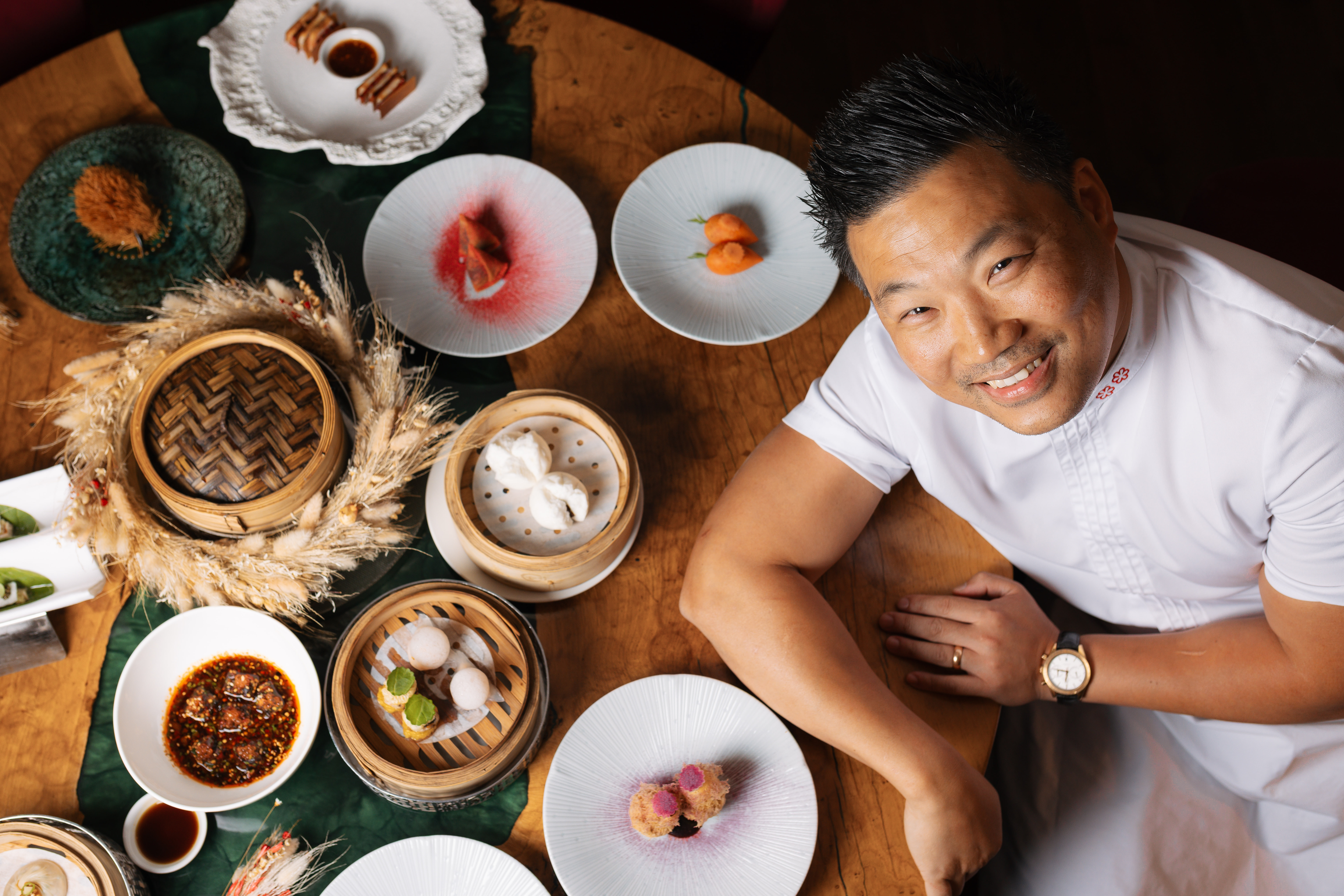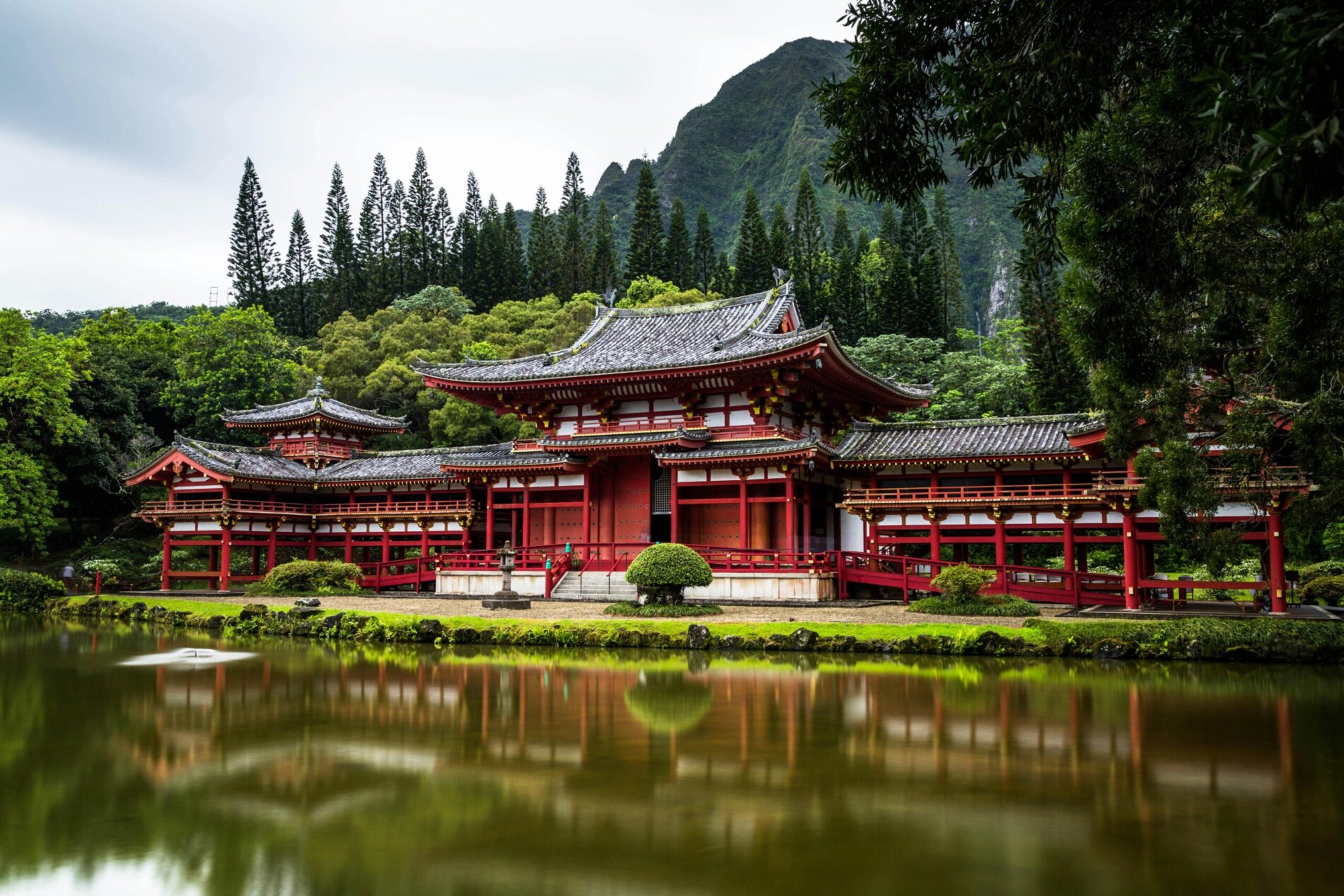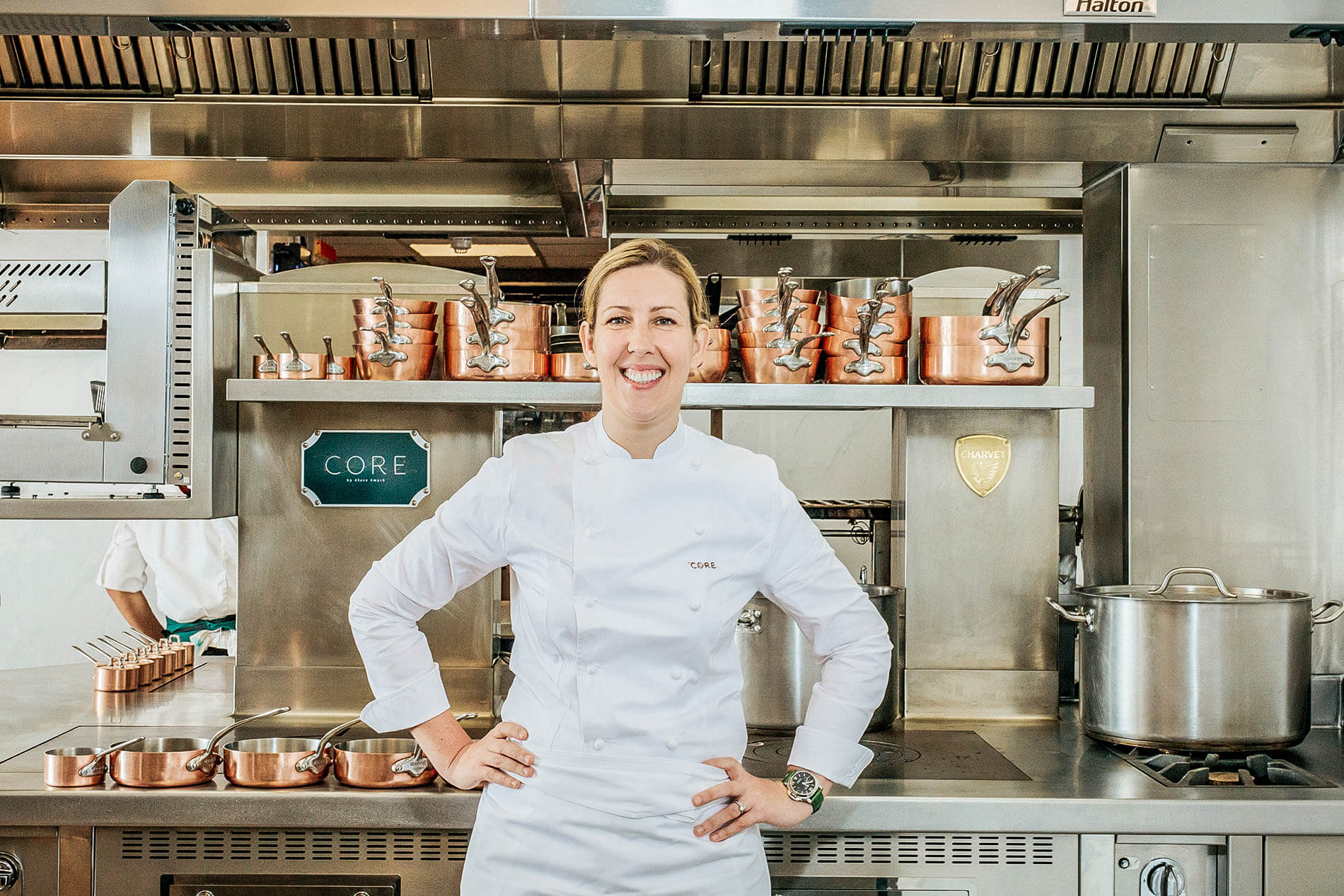WORDS BY VERENA NEUMAYR-HOWES
As the first Chinese restaurant outside Asia to be awarded two Michelin stars, A. Wong is both a celebration of regional Chinese cuisines and a deeply personal journey for chef and anthropologist Andrew Wong. We caught up with him to explore culinary legacy, cultural storytelling—and why even Pot Noodles reflect China’s 3,000-year-old food culture.
Three Generations and a Changing City
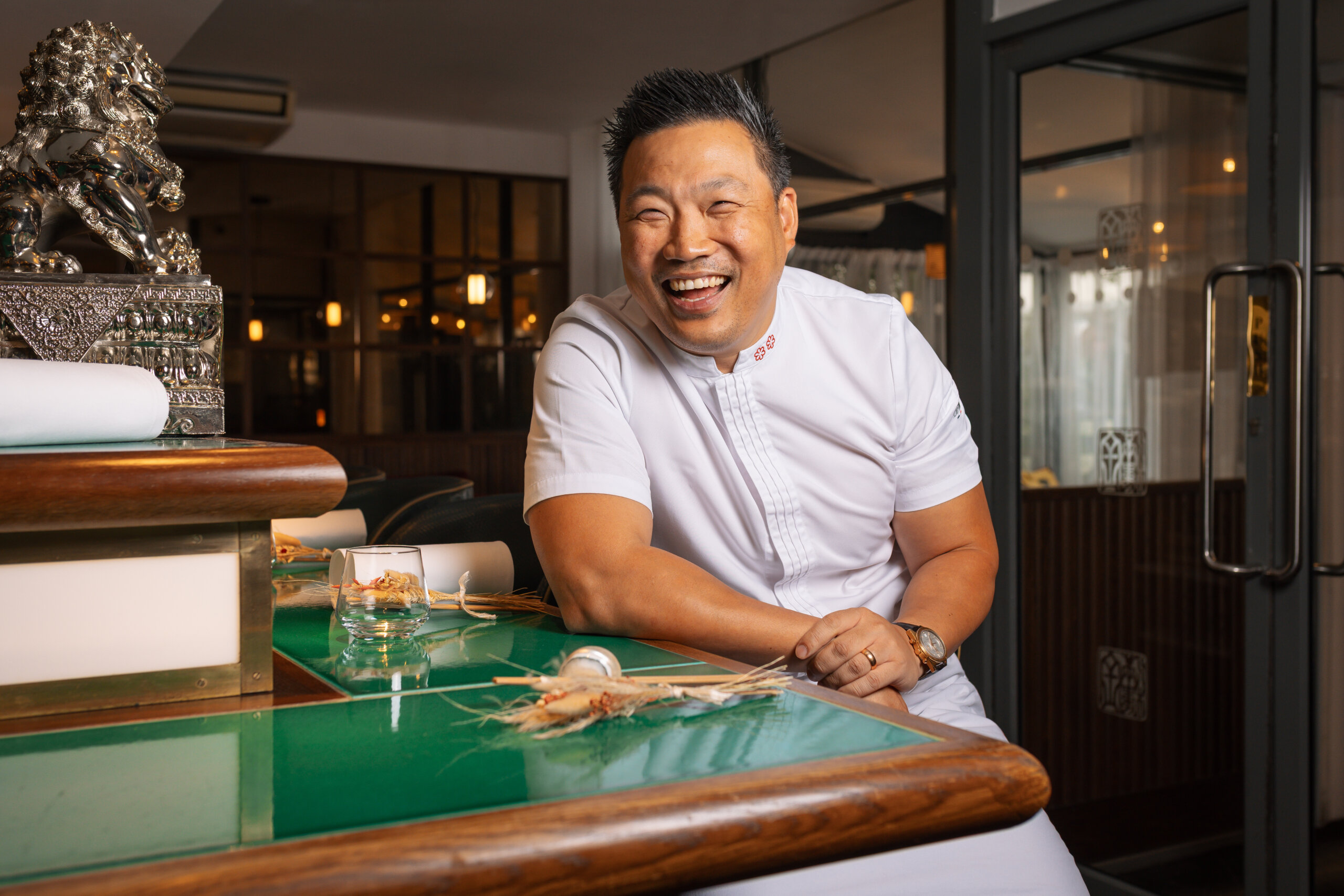
When Andrew Wong’s grandfather opened a Cantonese restaurant behind London’s Victoria Station 40 years ago, no one could have predicted it would evolve into a two-Michelin-starred destination. When Andrew and his wife Natalie took over the family business in 2012, their aim was simply to modernise it.
What followed, Andrew says, was a natural and organic evolution—shaped by conversations with guests, extensive travel through China, and years of experimentation in the kitchen:
“I wish there was a neat trajectory from then to now, but it was very organic,” he reflects.
Fine Dining Through a Chinese Lens
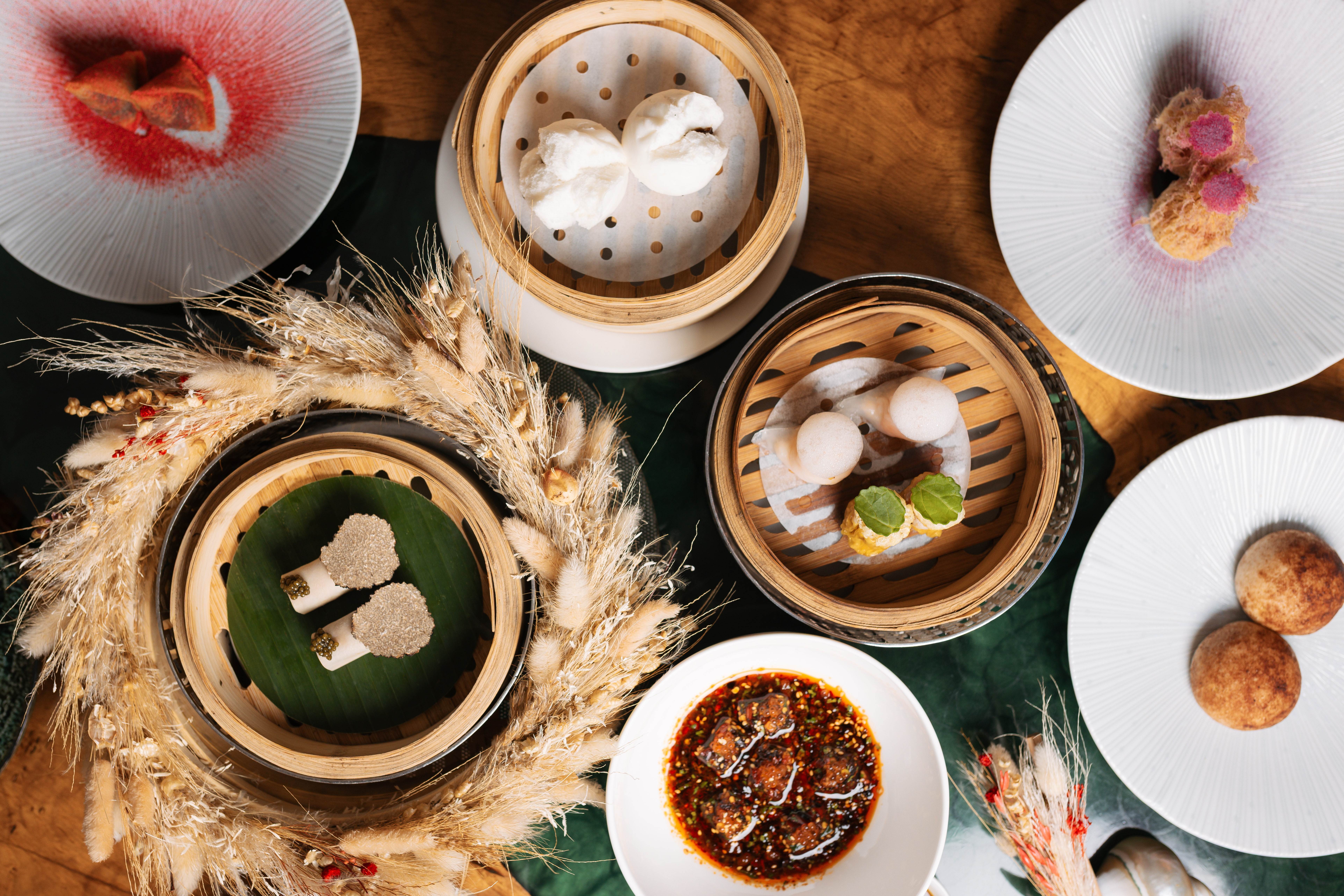
A recurring theme in Andrew’s work is the challenge of presenting Chinese cuisine in a fine-dining context without distorting its meaning. In China, high-end food is not always defined by luxury ingredients or complex techniques, but often by simplicity and balance.
“People often try to map a European understanding of luxury onto Chinese food, but that’s a mistake,” says Andrew. “Chinese meals are communal. The balance comes not from one dish, but from the collection of dishes.”
Join us and start Living X Ten click here.
The Power of a Single Bite
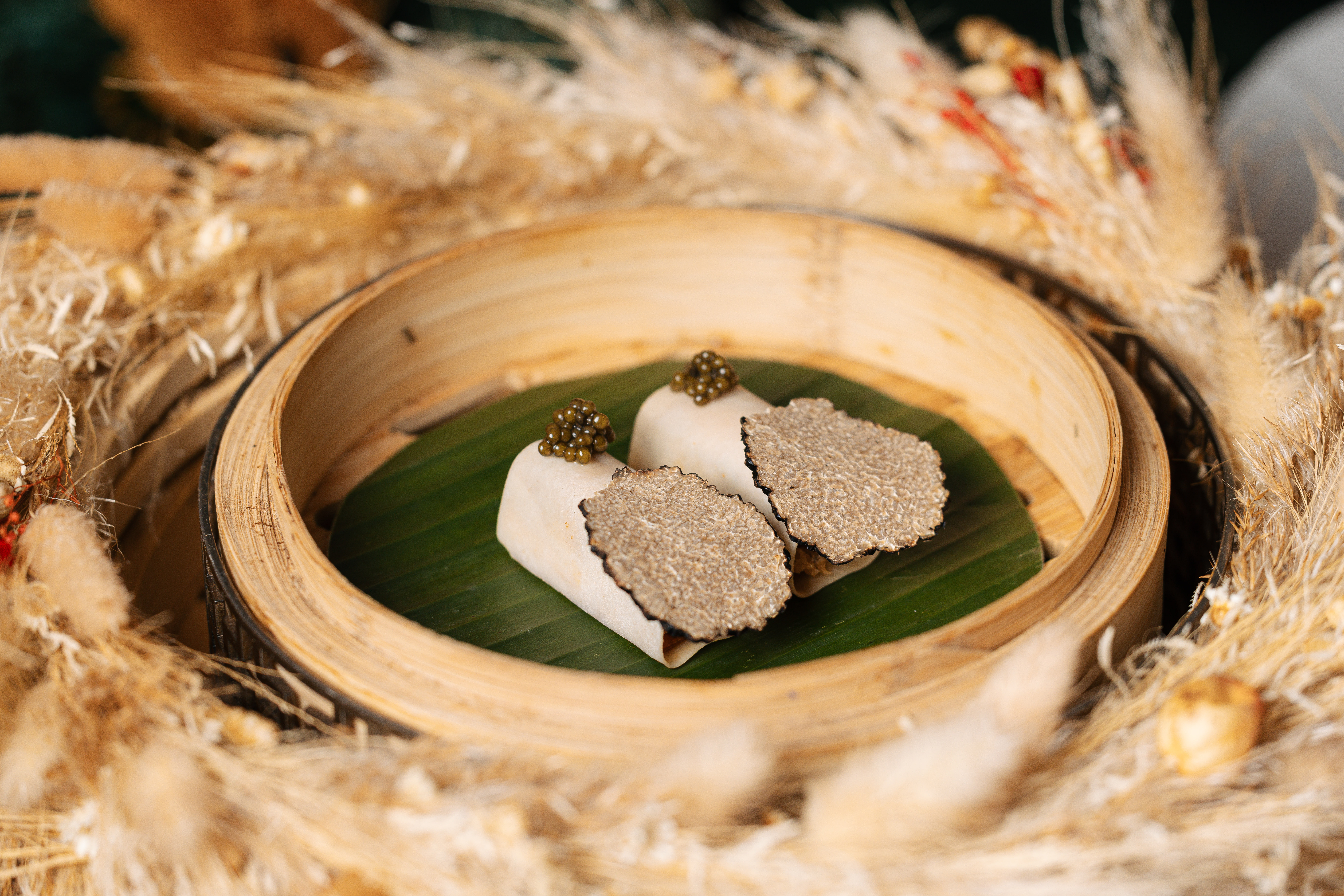
While the evening tasting menu offers a cinematic narrative experience, lunch at A. Wong is more playful—centered around dim sum as a vehicle for creativity and cultural storytelling.
“China in 2005 was a fast-changing, rollercoaster of a country. So it’s not necessarily about traditional dim sum,” Andrew explains. “Each bite is a mouthful of textures, spice, acidity. It’s one of the best vehicles I use to showcase how we move with the times.”
Despite the innovation, the technical skill behind dim sum remains underappreciated:
“It baffles me that dim sum chefs aren’t recognised like pastry chefs. The skillset is just as demanding—if not more so—with both sweet and savoury elements, and a wide variety of textures.”
A Custodian of Regional Cuisines
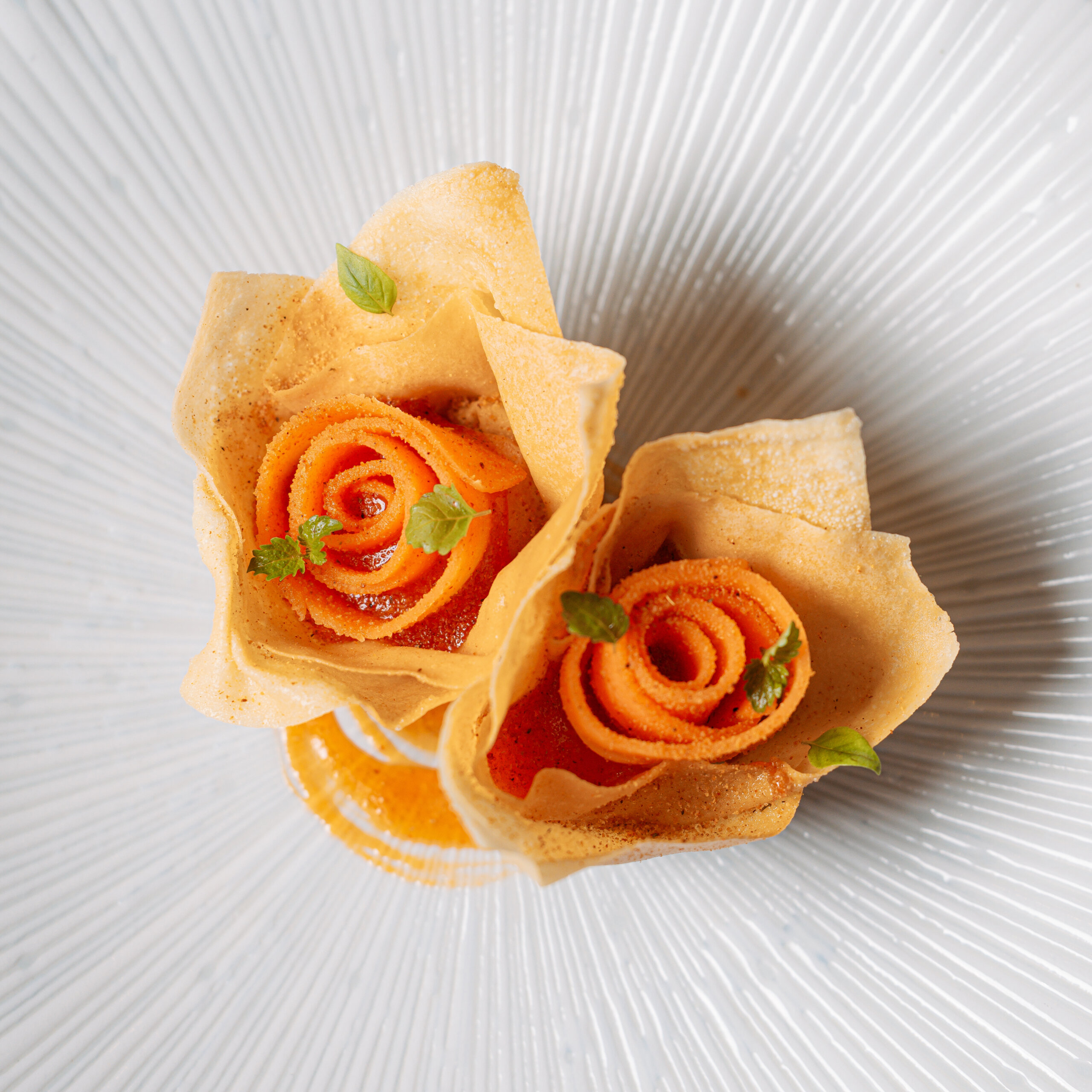
Wong received its first Michelin star in 2017, and its second in 2021—an international milestone that went far beyond personal validation.
“The first star was for me, Natalie, and the team. The second one felt bigger. It was for my parents, their generation, and the wider Chinese community.”
Andrew’s passion for regional Chinese cuisines is palpable:
“London is one of the most dynamic and eclectic cities for regional Chinese food. Migration patterns have brought in hotpot, Sichuanese, Hunanese, and northern and western Chinese cuisines—each offering something unique.”
An Academic Approach
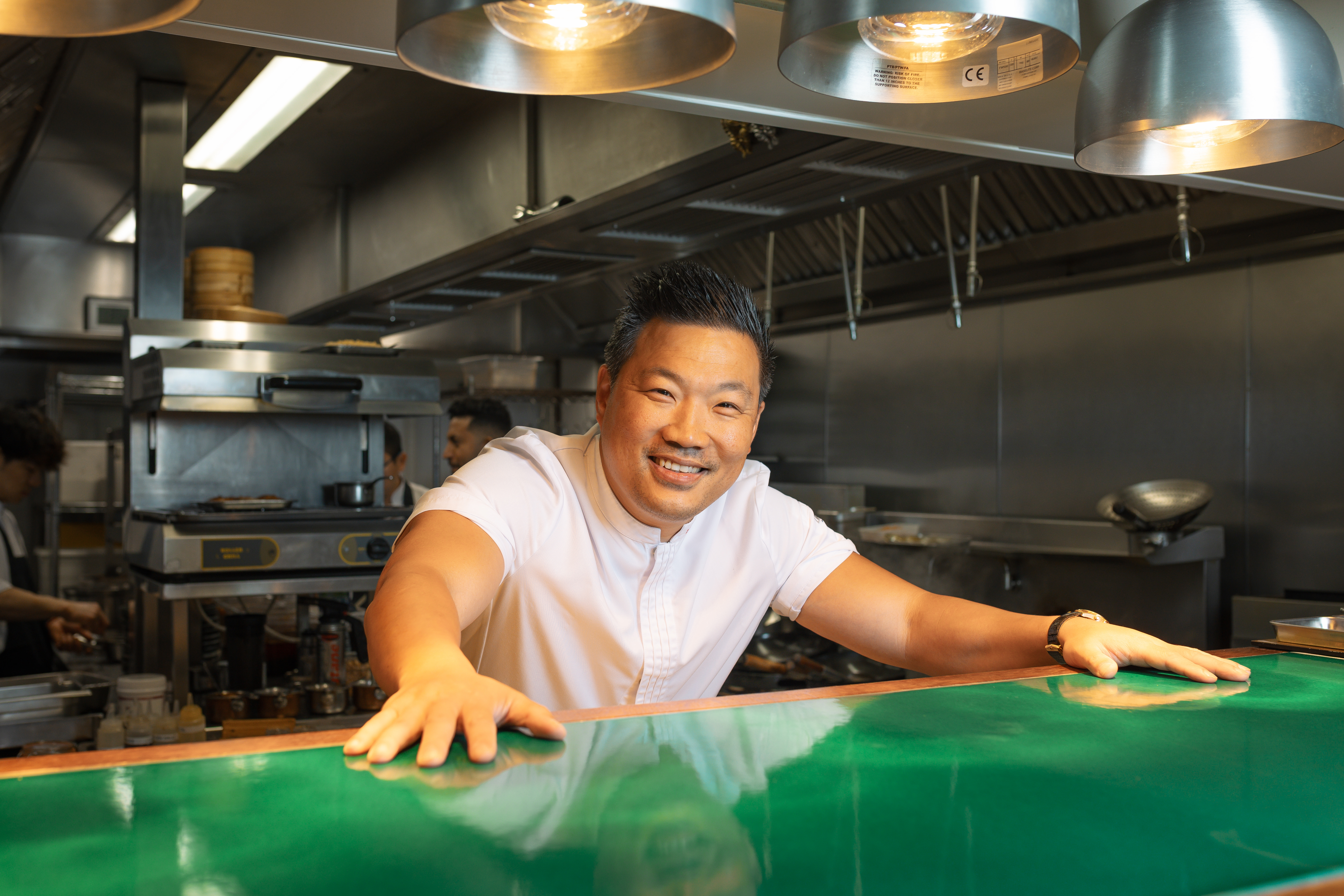
Born in Britain to Chinese parents, Andrew’s understanding of Chinese cuisine is rooted not just in personal history, but also in academic exploration. He has spent months travelling through China, speaking to cooks, scholars, and street vendors to better understand the culture behind the food.
“When people remember stir-fried noodles they had on a street corner in Taipei or Dong in Hong Kong, it’s not just about ingredients—it’s about place, company, and moment,” he says.
“You can’t transplant that experience to London. But we can create new memories.”
This academic curiosity is reflected in his collaboration with Dr. Mukta Das, a food anthropologist at SOAS University of London. Together, they study historical texts and reconstruct ancient recipes—not to replicate the past, but to inspire the present.
“Sometimes what we find completely contradicts what we assume as chefs. That tension is healthy—it’s how we balance yin and yang.”
Back to Basics
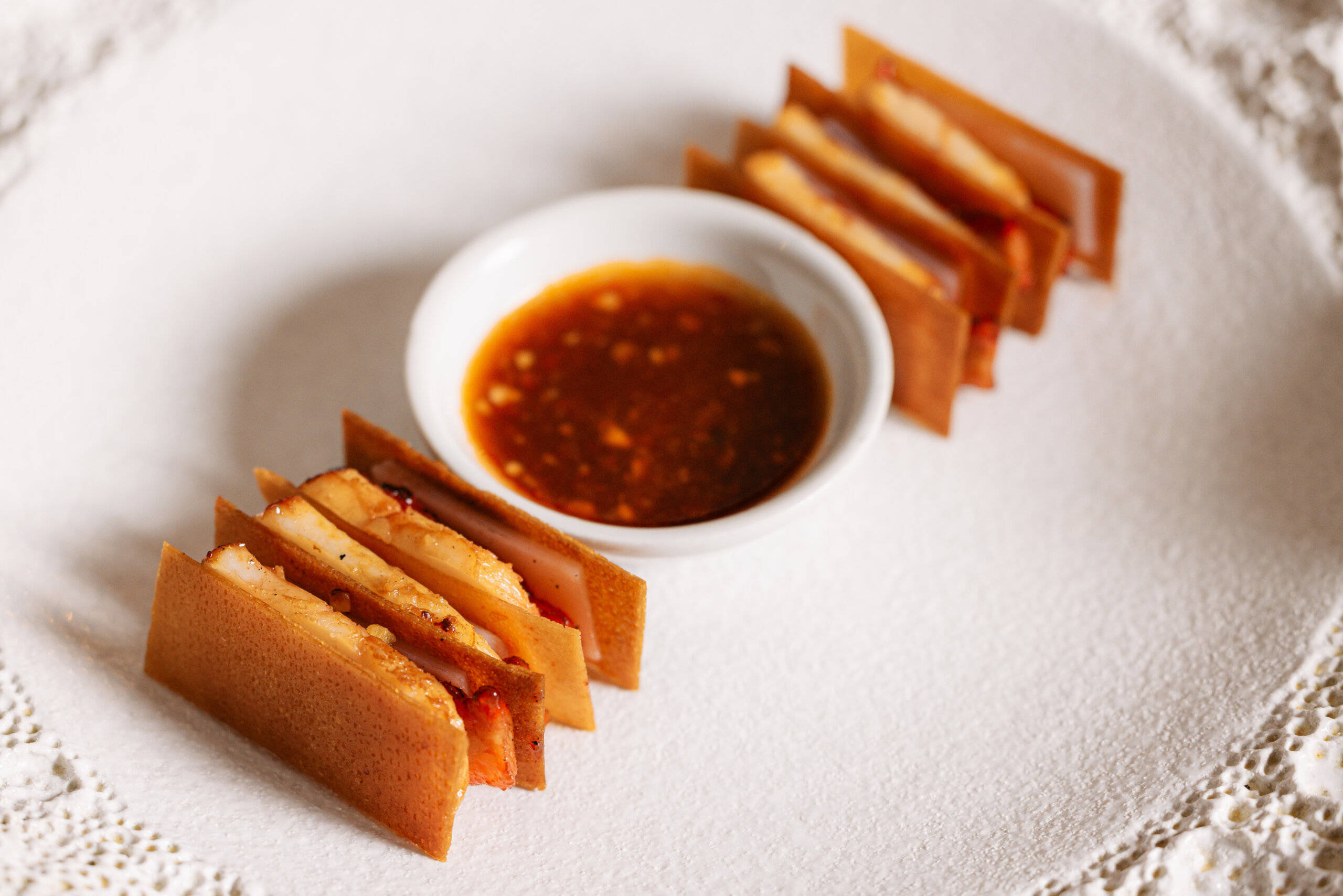
Andrew’s YouTube channel, Studio AWong, is designed to bring traditional Chinese cooking techniques to home cooks. From steaming to sauce-making, the goal is to make the foundations of Chinese cuisine more accessible.
He also champions the use of traditional pantry staples—fermented bean curd, preserved mustard greens, and spiced chilli radishes—as tools for everyday creativity, even with instant ramen.
“In China, instant noodles aren’t seen as unhealthy. You should see the range of sachets in some of them—from dried spices to fermented pastes. It’s like rocket science—and utterly delicious!”
From his family legacy in Victoria to Michelin-starred innovation, Andrew Wong is reshaping how we perceive Chinese food. At A. Wong, every bite tells a story—rooted in heritage, informed by scholarship, and reimagined for the future.
Reserve a priority table at A. Wong and start Living X Ten click here.
